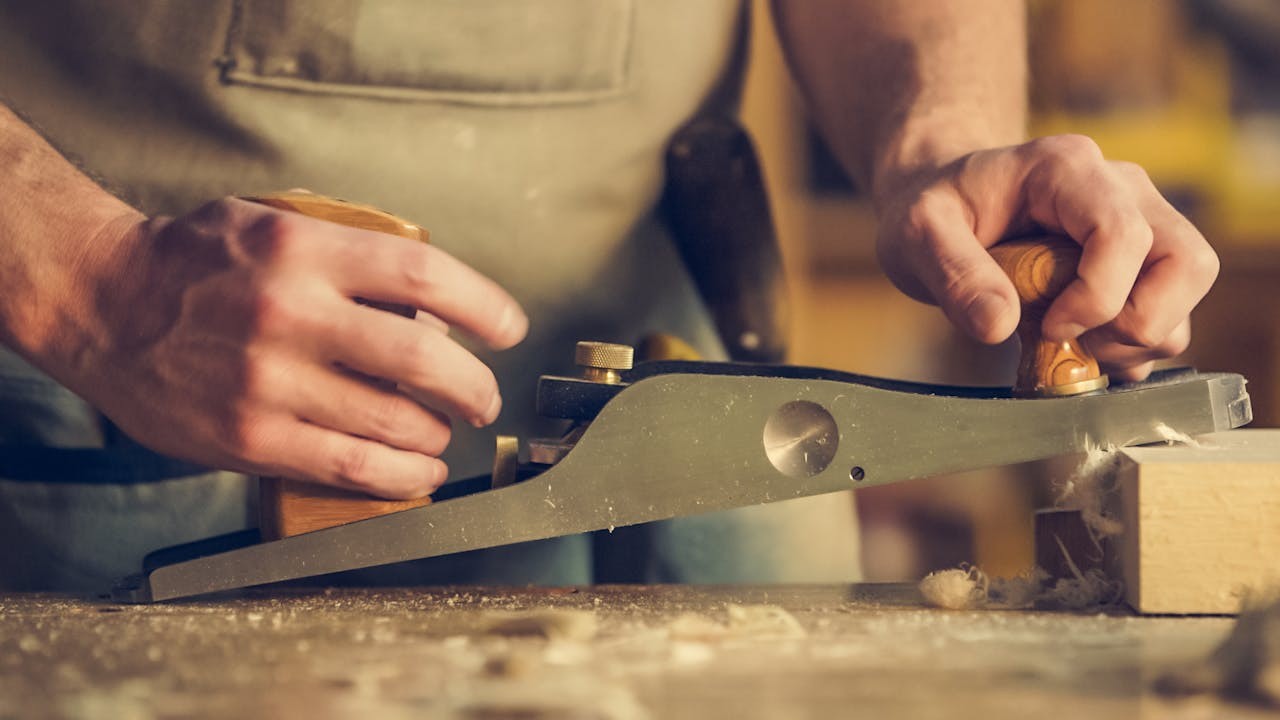
The work of funeral directors in the UK has quiet and practical beginnings. It grew out of the trades people relied on every day. When a death happened, the family would turn to someone they already trusted who had the necessary skills. Often this was a carpenter. Sometimes a furniture maker. Sometimes a builder. The link was simple. These trades had the skills and tools needed at a difficult time.
Across Britain many early funeral providers began as joiners. They were used to measuring, shaping and finishing wood. They built coffins because no one else in the village had the right workshop. Making a coffin was first seen as a straightforward task for a skilled craftsperson. It was an extra piece of work rather than a separate business. Yet families then asked for more help. The same person who made the coffin was often asked to organise the rest of the arrangements.
Furniture makers were involved for the same reason. They had wood stores, strong benches, hand tools and experience with fine details. When they were asked to make a coffin they would then help with the practical steps that followed. This support could include preparing the room where the person would rest. It could include arranging a cart or horse. It could include speaking with the church or the burial ground. One task led naturally to another.
Builders played a part too. They helped maintain burial plots and prepare ground for interments. They handled the heavier work that families could not manage. In time they were asked to help with more than the grave. Many small firms kept both building work and funeral arranging under the same roof for decades.
By the early nineteenth century these informal roles began to form a clearer trade. People started using the word undertaker. The undertaker was the person who undertook the responsibilities the family could not carry. These responsibilities kept growing. Transport became more formal. Coffins became more standard. Equipment was stored in workshops that were once used for carpentry or general building. A simple extra task had turned into a reliable service.
The next stage in this shift came when families wanted more support on the day of the funeral. Undertakers provided staff to carry the coffin. They arranged printed notices. They guided the order of the service. Their work now touched every part of the day. The term funeral director slowly replaced undertaker. It reflected the wider set of duties. It also reflected a more professional role.
Many funeral directors still have this heritage in their background. It explains why the work feels grounded in practical skill and why the values are often steady and personal. The roots lie in trades that cared about quality and trust. Even today many funeral firms remain family run. Their offices may once have been joiners workshops or timber yards.
Knowing this history helps when planning a funeral. It shows that the role has always been built on practical guidance rather than ceremony alone. Families want someone who can make sense of the choices. They want clear costs. They want someone who knows the local area and its customs. These needs have not changed.
This is where The Farewell Guide helps. People sometimes begin their search online rather than walking into a local shop. They want to see who is nearby. They want to understand what services are offered. They want to feel confident before they pick up the phone. The Farewell Guide shows funeral directors across the UK in one simple place. Listings are free and checked for accuracy. Users do not pay. It is a calm way to choose someone you can trust.
The same site lets you record your own funeral wishes. This is helpful because modern funerals are more varied than those arranged by the carpenters and joiners of the past. Some people want a celebratory gathering. Some want a simple cremation. Some want specific music or readings. Others want nothing formal. You can write down your choices and keep them safe until you choose to share them. Even a short list makes things easier for the people who will plan your funeral one day.
If you are arranging a funeral for someone you love you can match their wishes with a funeral director who fits the style they wanted. The Farewell Guide keeps this process clear. It removes pressure and helps you see the practical details first. This is in the same spirit as the early craftspeople who understood that families needed steady help, not complexity.
Funeral directors in the UK did not begin as large companies. They began with people who shaped wood, repaired homes and made furniture. The heart of the work was care and craftsmanship. That spirit remains. By using The Farewell Guide you can plan in the same practical way. You can find someone you trust. You can leave guidance for those who will care for you in the future.
Further reading
Why Should People Shop Around for Funeral Directors?
A Guide to Funeral Prices: There is no one size fits all